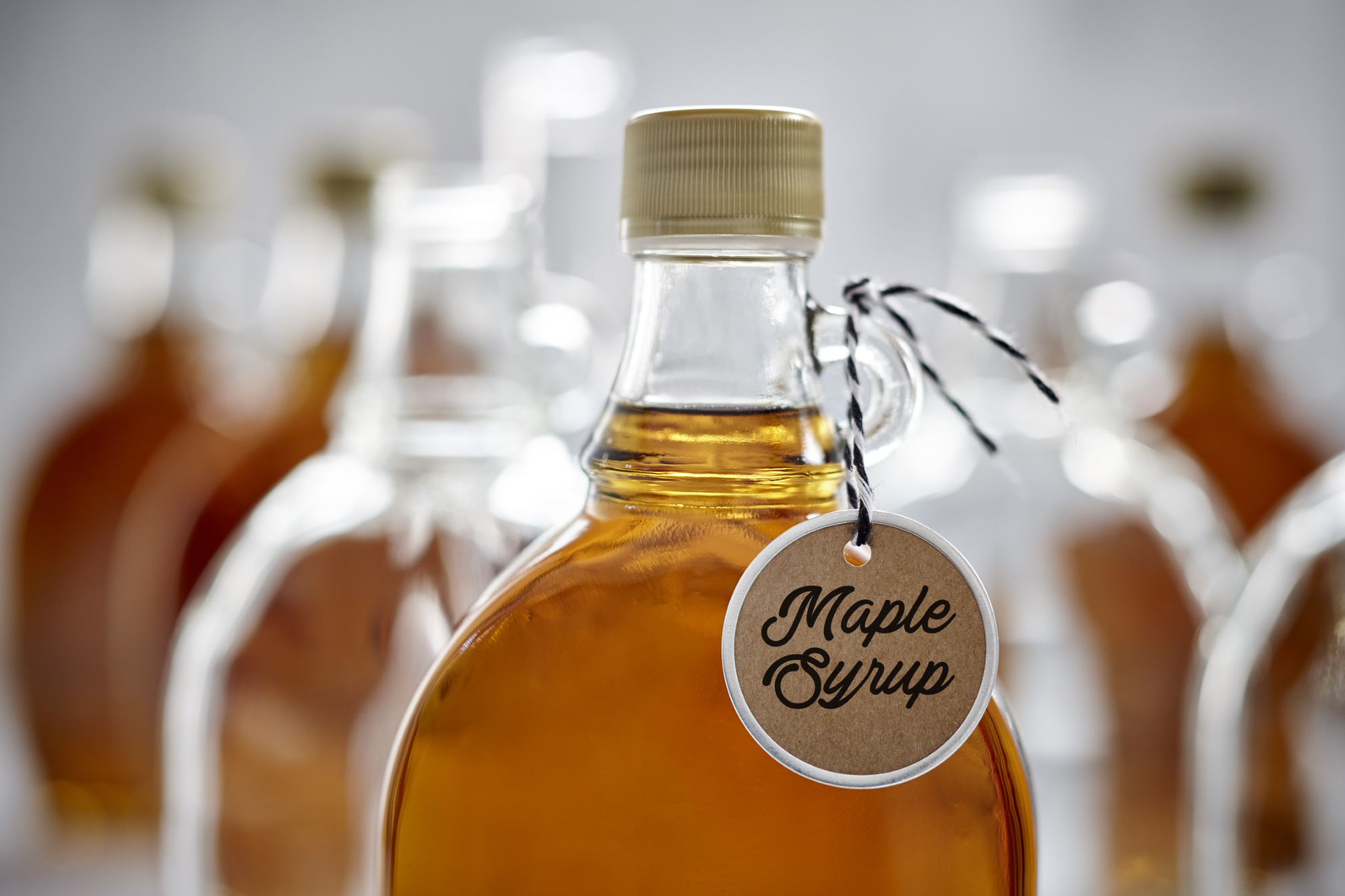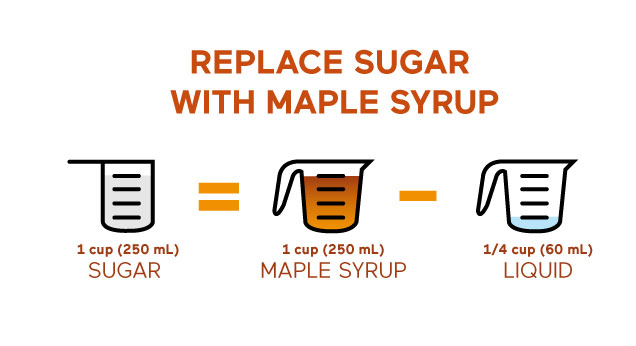Maple Syrup vs Sugar
WHICH SWEETENER IS HEALTHIER?
We all know that it’s important to limit the amount of sugar in our diet – but this is easier said than done!
Rather than reduce sugar intake entirely, many people choose to substitute the ingredient for other sweeteners.
As a completely natural sweetener, maple syrup is often seen as a healthier and more sustainable alternative to sugar.
But is maple syrup really better for you than sugar? And what’s the best way to substitute one for the other? Let’s find out!
Maple syrup vs sugar: production
Made solely from the sap of maple trees, pure maple syrup is a natural sweetener free from artificial additives and preservatives.
The production process begins at the start of spring, when fluctuating temperatures force the maple sap stored in the roots of the tree out to the trunk and branches, ready for collection.
From here, the sap is transported to a sugar shack, where it is boiled to reduce the water content, eventually forming maple syrup.
Learn more about the maple syrup production process below.
Most sugar is derived from sugarcane or sugar beets, with both plants producing a juice that can be extracted and boiled to form sugar crystals.
The filtration process removes the natural vitamins and minerals associated with the plant source, leaving pure sugar. These white crystals can then be mixed with molasses to make brown sugar.
In some countries, non-vegan products like bone char are used during sugar processing, however this generally isn’t the case in Australia.
As for maple syrup, bottles labelled as “pure maple syrup” or “100% maple syrup” will be free from other ingredients and are therefore perfectly suitable for vegans.
Learn more about the vegan credentials of maple syrup below.
Maple syrup vs sugar: nutrition
Maple syrup and sugar are fairly similar nutritionally, though there are a number of important differences in terms of calories, carbohydrates, vitamins and minerals.
| 20ml tbsp pure maple syrup (26.7g) | 20g granulated sugar | |
| Calories | 69 | 77 |
| Fat | 0g | 0g |
| Carbohydrates | 17.8g | 20g |
| Sugar | 16.1g | 20g |
| Protein | 0g | 0g |
| Calcium | 27mg | 0.2mg |
| Manganese | 0.54mg | 0mg |
| Riboflavin | 0.34mg | 0mg |
| Glycaemic index | 54 | 65 |
The nutritional data for sugar in the table above is taken from the U.S. Department of Agriculture, while the data for maple syrup is taken from our maple syrup nutrition page.
Calories
Sugar contains more calories than maple syrup, with one 20g serving of table sugar providing 77 calories compared to 69 calories from the same quantity of maple syrup.
This may not seem like a huge difference, but the calories can quickly add up when using larger quantities for baking or cooking.
Carbohydrates
Sugar also has more carbohydrates than maple syrup, because it is comprised almost entirely of sucrose.
Maple syrup is made up of around 17.8g of carbohydrates per 20ml serving, with most of this consisting of sucrose.
Fat
When it comes to fat, granulated sugar is completely free of the substance.
Maple syrup does contain some fat, though the quantity is very small at around 0.02g per tablespoon serving.
Vitamins and minerals
One area in which maple syrup has a nutritional advantage over table sugar is vitamins and minerals.
Pure maple syrup is considered a source of riboflavin and manganese and also contains small traces of calcium.
White sugar, on the other hand, has very few nutrients as these are mostly removed during the filtration process.
Glycaemic index
Maple syrup is lower on the glycaemic index than table sugar, which means it doesn’t raise blood sugar as quickly.
It’s important to note here that the glycaemic index of different sugars will vary, though these are generally all higher than maple syrup.

Maple syrup vs sugar: health benefits
While it’s best to limit intake of table sugar and maple syrup, a mounting body of evidence suggests that maple syrup may be a healthier sugar alternative.
A recent study found that replacing small amounts of refined sugar with an equivalent quantity of maple syrup led to better outcomes for cardiometabolic health.
Compared to the control group, the test group reported:
- A reduction in abdominal fat
- Decreased systolic blood pressure
- Improved glycaemic response
Given that these are all cardiometabolic risk factors, the study indicates that maple syrup is a better alternative than refined sugars when it comes to regulating your cardiometabolic health.
Learn more about the potential health benefits of pure maple syrup below.
Can you substitute sugar for maple syrup?
Given that maple syrup has fewer calories and is better nutritionally than table sugar, you may look to substitute sugar for maple syrup when cooking and baking.
Maple syrup tahas a stronger flavour than table sugar, so it’s generally recommended to use less in recipes. We suggest using ¾ of a cup of maple syrup per 1 cup of white or brown sugar.
If you’re substituting sugar for maple syrup in a baking recipe, you should also consider reducing the oven temperature by 10°C.

So, is maple syrup healthier than sugar?
In terms of calories, vitamins and minerals, maple syrup seems to offer great nutritional value than sugar.
In fact, substituting sugar for an equivalent amount of maple syrup may lead to improved cardiometabolic health.
Ultimately it’s best to reduce your use of sweeteners, though if you are to pick one, pure Canadian maple syrup has a slight edge over table sugar.
Want to make the switch to maple syrup? Check out our range of recipes with maple syrup for inspiration!
